Marketing often comes across as ahistoric – with little reference to tactics and strategies that have been done in the past. People often think they’re implementing new ideas or that because platforms and technology change, the messages must be new too.
But I’m interested in more than just ‘what now’ – as a trained historian, I have a practiced habit of thinking about how things change over time.
In that vein, I’ve put together a series of retrospective posts I’m calling ‘A Year and 1.5m Apart’ – how email marketing has changed (or not) from company to company due to COVID-19. Let’s kick off with everyone’s favourite, Booking.com – I hope you learn something, do comment if you’ve got thoughts of your own.
Booking.com
Founded in 1996 in Amsterdam, Booking.com has grown from a small Dutch startup to one of the world’s leading digital travel companies. Part of Booking Holdings Inc. (NASDAQ: BKNG), Booking.com’s mission is to make it easier for everyone to experience the world.
Booking.com Website
Messaging 2019
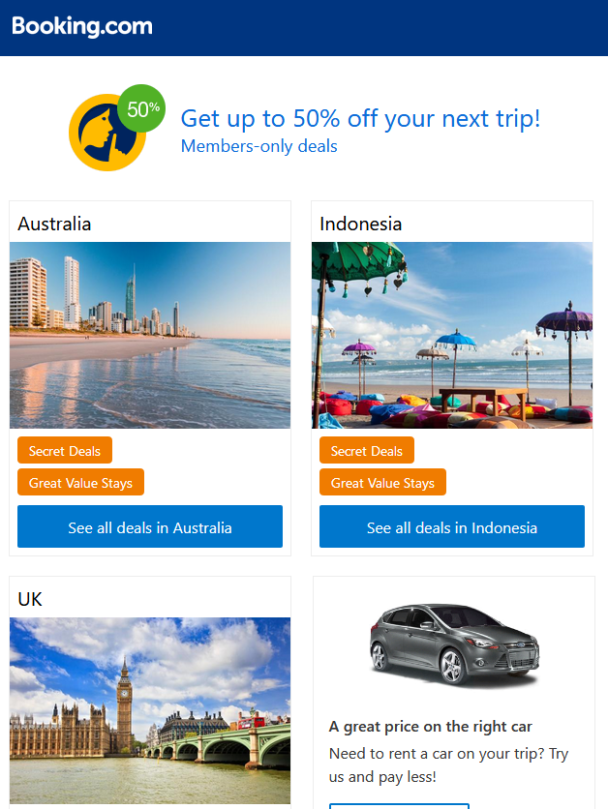
In 2019 the focus of this email was largely on getting deals. Travel broadly, travel cheaper is the main thrust. The email serves up what looks like a data driven deal type template, and seems like a ‘business as usual’ kind of send.
Local travel options are present however it’s a largely international affair, with deals from the UK, Indonesia, USA, Japan. The message is clear, enjoy the traveling life, you can go anywhere and you can go without breaking the bank.

The presence of a whispering woman with a ‘50% off’ headline goes further to reinforce this by drawing attention to itself with a small animation upon load.
Messaging in 2020
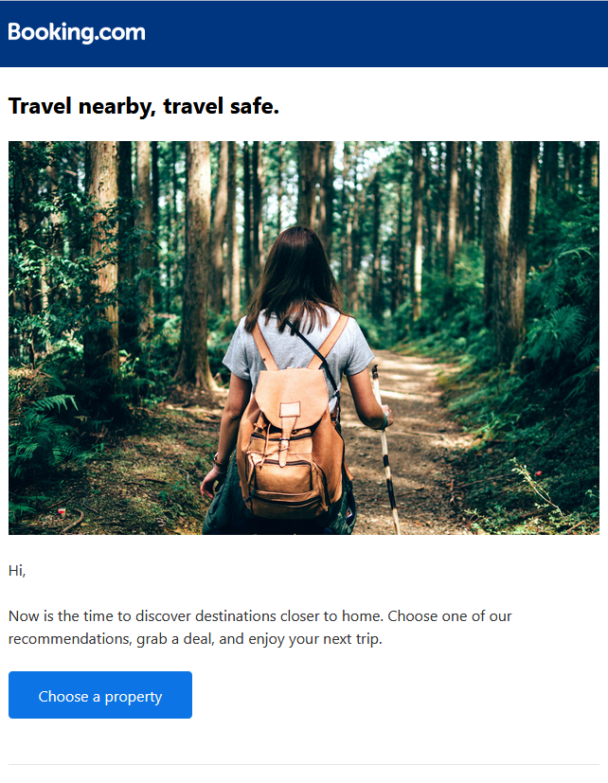
The 2020 version is a simple and explicitly stated message, travel nearby, travel safe. A short but clear difference that comes with a more cautious tone.
Gone is the lead in with deals, goodbye whispering woman with your 50% off header. Cheaper is no longer the primary concern of this email.
Don’t worry about deals, don’t worry about secret offers – now’s the time to stay nearby. The buttons have become gentle, ‘Show me more’ is a much more passive voice than ‘see all deals’ from 2019.
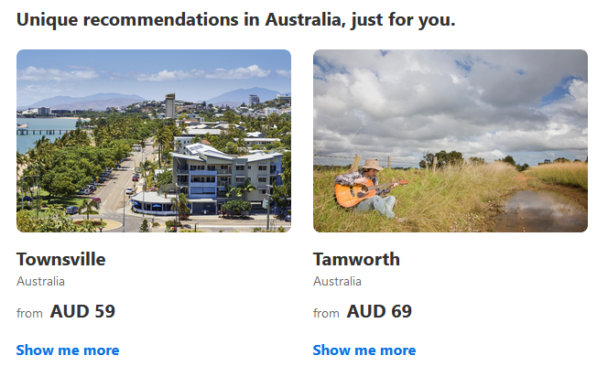
Destinations have also become more restricted. Clearly I have indicated at some point I’m in Australia, as there are no international holidays on offer.
Not just deals though! Research for future holidays is also a feature of this email, though lower priority given its position lower down in the email. I’m not sure it worked amazingly well, as it seems it’s pushing staying local – but in the UK.
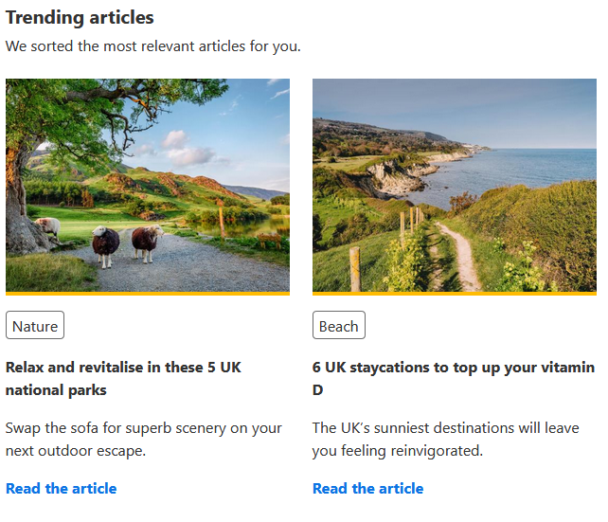
Additional Modules

In 2019, additional call out modules were really supporting the main message. Top deals – and finding savings. We know that people don’t read linearly on the web, so additional modules that call out information in different ways can go to support the primary message. In this case, it’s business as usual – get deals.

In 2020 we see the emergence of supporting messaging like the one above. Free cancellation policies. Because of COVID, and the uncertainty around the ability to travel – many businesses have been swamped with the additional cost and burden of cancellations, leading to customer dissatisfaction and insurance policies not being paid out. Booking.com is no different.
Generally
These changes shouldn’t come as a surprise to anyone, travel is significantly reduced, international travel from and to Australia is not a widely done at the moment. Globally the world is cautious, weary, and very much shut in parts.

“Australia’s borders are closed.”
These changes make sense from Booking.com’s position – and providing a cautious approach to travel, while still offering the core function of the website (booking travel!) is a necessary change.
Overall I think the approach has been done well. The change is so clear when contrasted with a year ago, and has changed along with general population’s expectations about their own lives and movement.

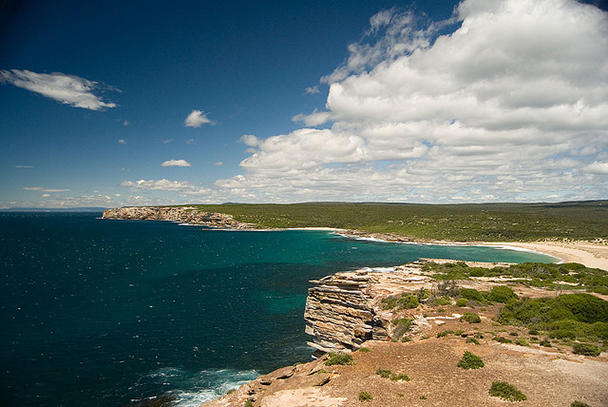
A great concept Andrew! Looking at the changes in how a business has changed the way it communicates as much as what it communicates is very interesting. Would be great to know whether engagement has increased with this softer approach (despite a highly probable decline in bookings). To this point, maybe a ‘Wish-list travel itinerary’ in response to the inspiration and exploration that’s being encouraged, would be of use for when we do finally get our passports back!